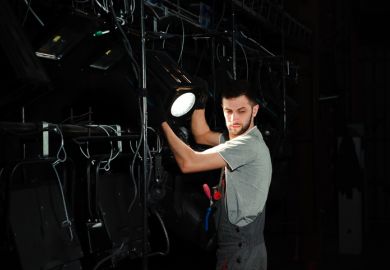Human society is all about meeting the “needs” of the populace – but which demands and aspirations are legitimate? It’s an important question.
So here is a sprightly and authoritative romp through the history of the philosophical advice on the issues, which Emrys Westacott says is devoted almost entirely to urging frugality and eschewing vulgar materialism. To illustrate the point, he brings in a wide range of authorities, from Diogenes and Epicurus to Henry David Thoreau and, well, Emrys Westacott. Diogenes is an unpersuasive advocate of simplicity, as his radicalism obliged him to do things such as defecate and masturbate in public, but Epicurus has fared better, representing a special kind of pleasure-seeking – the pleasure of the simple life.
The choice of philosophical examples is skewed somewhat. Nietzsche, whom Westacott claims for asceticism, really advocated a very different kind of lifestyle, and doubtless would have liked to have indulged himself had it not been for his chronic indigestion and other health problems. The Pythagorean rule against beans is attributed to their being too luxurious for the sect, whereas it really referred to the practice of gambling, carried out with beans in a jar.
Underplayed is Aristotle’s very clear recommendation for conspicuous consumption, with his rejection of “niggardly man” whose horizons would reach only to the savings available from, say, homemade toilet-brush holders.
Even Plato’s stern (Spartan) regime is recommended only for his elite – not the masses they rule over. As Westacott himself says, in one of many amusing but also enlightening asides, Plato himself had sufficiently grand habits as to cause Diogenes to trample on his rich carpets, saying, “Thus I do trample on the empty pride of Plato,” to which Plato retorted, “With quite as much pride yourself.”
Sometimes Westacott seems to confuse two separate kinds of frugality – the search for economies from necessity and the quest for simplicity and sustainability. That the author makes his toilet-brush holder out of an empty milk carton appears to be driven by the latter motivation, much as Benjamin Franklin, for most of his life, ate his breakfast out of a pewter bowl with a wooden spoon. Although, sure enough, one day, his wife decided that he deserved silver and china “as well as any of his neighbors”.
Indeed, when we look at many enthusiastic exponents of the simple, from the Greeks to monks, what is obvious is that the frugality has become mixed up with a kind of inverted sense of social superiority. Not to forget those – like Scrooge – whose economies make them miserly, leading them to become indifferent to the genuine needs of others.
So where is the real philosophical impetus for frugality, which runs so consistently against public opinion? Schopenhauer warns of the extravagance that conceals a poverty and emptiness of mind, and Sam Volk, the financier-turned-charity-worker, speaks of “wealth addicts”, whose lifestyles reflect a loss of self-control.
Yet the drive for more is deeply rooted in human nature. Indeed, as the great philosopher of money Adam Smith says, it makes life possible. It is hard to see why a virtuous ideal that would tend to destroy society if applied generally is truly wise. Nonetheless, Westacott, while freely acknowledging the irony, has a jolly good try.
Martin Cohen is editor of The Philosopher. His most recent book is Cracking Philosophy (2016).
The Wisdom of Frugality: Why Less is More – More or Less
By Emrys Westacott
Princeton University Press 328pp, £19.95
ISBN 9780691155081 and 9781400883301 (e-book)
Published 19 October 2016
Register to continue
Why register?
- Registration is free and only takes a moment
- Once registered, you can read 3 articles a month
- Sign up for our newsletter
Subscribe
Or subscribe for unlimited access to:
- Unlimited access to news, views, insights & reviews
- Digital editions
- Digital access to THE’s university and college rankings analysis
Already registered or a current subscriber?




